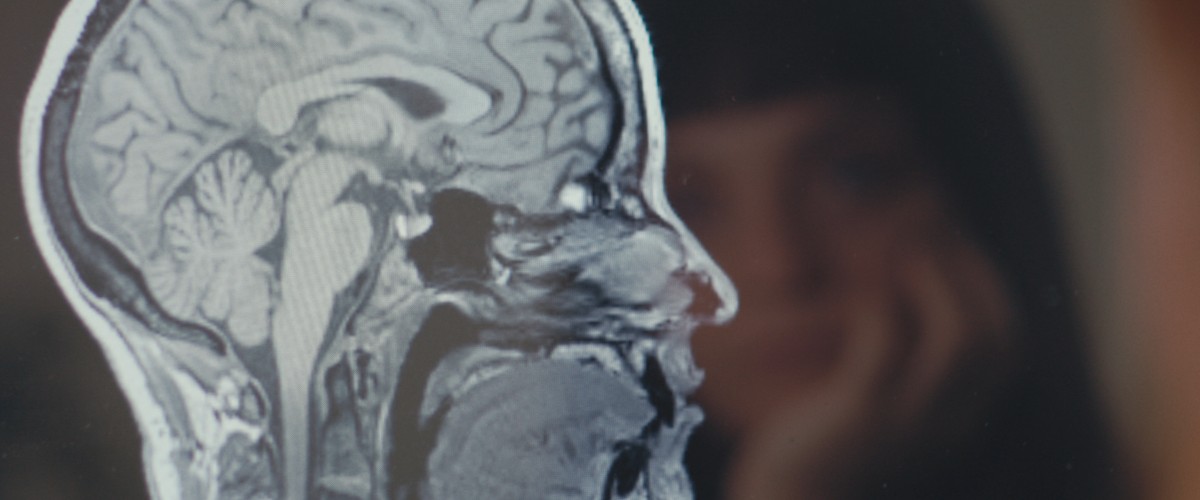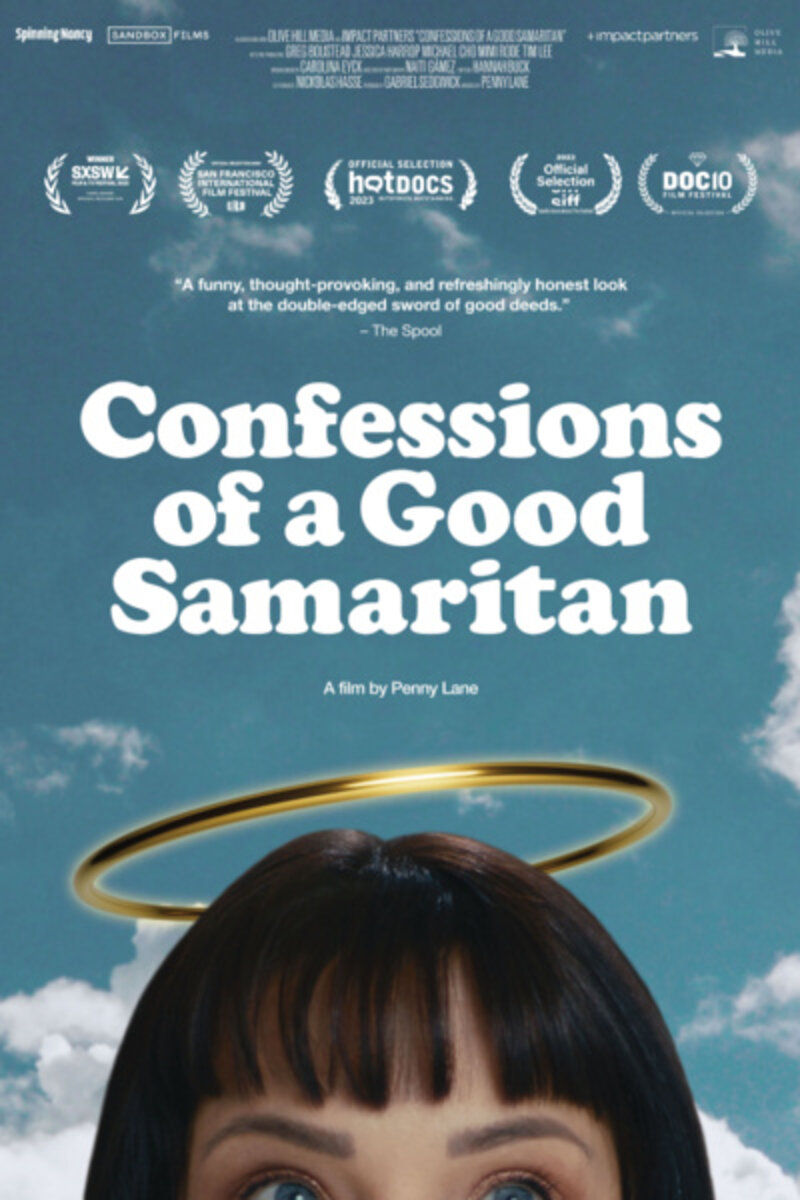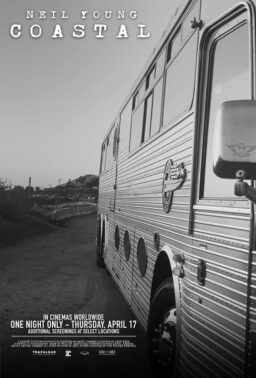Penny Lane has long been one of our most fascinating documentarians in the modern era: her early works teetered between archival (“Our Nixon“) to anthological (“Nuts!”) to anthropological (“The Pain Of Others”). You never see her face or hear her voice; it’s just her ideas and her assemblage of footage into thoughtful, empathetic essays about everyone from hucksters to victims to disgraced presidents. But it’s been exciting to see her grow as a filmmaker into a more personal, confessional mode, allowing her bright smile and searching eyes (beaming under a set of black bangs) in front of the camera. It’s a mode she’s clearly uncomfortable with, peeking forth in fits and starts: “Hail Satan?” finally gave us her voice behind the camera as she spoke to members of the Satanic Temple, and “Listening to Kenny G” put her in a supporting role as she and pop music’s most popular/reviled musician talk about his complicated reputation.
But with “Confessions of a Good Samaritan,” Lane is in her most confessional mode yet, finally turning the camera fully on herself. You see, back in 2019, she decided, seemingly out of thin air, to donate her kidney to a stranger. She’s not alone, as she learns; lots of people around the country choose to become altruistic or “Good Samaritan” donors, giving up a part of their body they don’t need in order for someone else to live. What fuels these decisions? Why don’t people do it more often? And why, if this is such a selfless, noble act, does it scare the shit out of Penny?
These are the questions Lane explores in her signature blend of investigative depth, wry humor, and innate curiosity, now suffused with a heaping helping of cynical self-reflection. Her works often tackle the differences between seeing and being seen by others; this time, she wonders how to bridge the gulf between how she sees herself and how others do. As someone who’s both making a kidney donation and making a documentary about it, she constantly challenges herself on why she’s doing both of those things. Lane spends more time in front of the camera than ever, her discomfort palpable: “I find being on camera absolutely horrifying,” she confesses. And yet, bravely, she does so, not to signal her virtue but to figure out what the hell motivates her to do such a selfless, scary thing.
Along the way, Lane interviews a host of voices circling around the nature of giving, making “Confessions” feel delightfully conversational and easygoing. Early on, she speaks to altruistic donors who speak of their sacrifice as a noble calling; from off-camera, Lane’s banter seems to search for that same level of resolve even as they congratulate her for making that same choice. Then she speaks to everyone from neuroscientists to scholars to bioethicists to discover the history of organ donation, the risks in a modern context, and the very nature of altruism as a practice. It’s enlightening, even if each stop along the way isn’t quite as involved as it could be. (That’s small potatoes, though, and would interfere with the accessible, inviting nature of the thing.)
But then, we cut back to Penny, who’s simultaneously admiring of these people and terrified of her ambivalence toward the process. Screen-life moments serve as erstwhile confessionals, the MacBook screen filling the frame as she jots down every detail of the procedure and her accompanying nerves. (“What kind of moron wants to be in a hospital????”) It’s remarkably vulnerable without reading as being too self-effacing; there’s an honesty to her wrestling with these feelings through documentary. It is, after all, the thing she seems to love most.
At the end of the day, “Confessions” is about what we feel we owe each other in an increasingly atomized society. When community and selflessness are increasingly discouraged, how do we incentivize others to put someone else’s needs ahead of their own? Is altruistic donation an ultimate good in a world where thousands of people die every day from kidney failure? Is it ethical to pay people to donate their kidneys? Should friends and family be more accepting of those who do? And, for Penny: did she do the right thing? “We make decisions every day on who to be nice to,” Lane asserts.




















